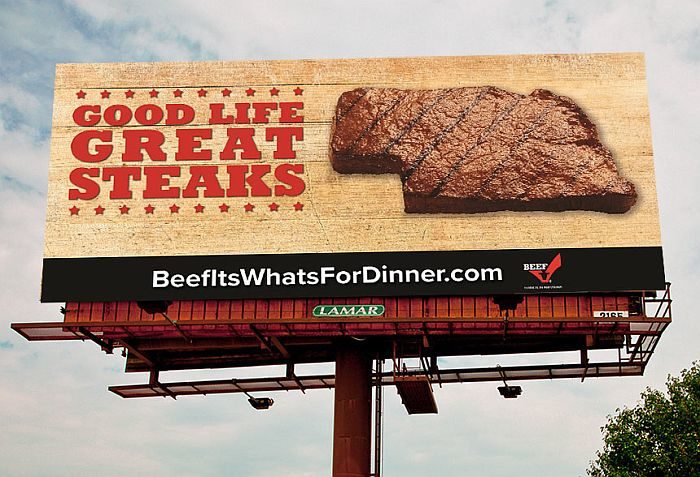[ad_1]
A city in the Netherlands is set to ban the advertising of meat from public spaces.
According to media reports, the city of Haarlem, which has a population of about 160,000 people and is located west of Amsterdam, will enact a law that prohibits meat advertising that can be seen on buses, shelters and screens in the city.
What prompted the ban? According to a BBC report, the motion was drafted by GroenLinks, a green political party, which believes that meat production is harmful to the environment because of the greenhouse gasses (GHGs) produced by the animals.
The ban will not take effect until 2024, due to existing contracts with companies that sell meat, The Guardian reported.
Why pick on meat?
The first article on the subject I came across pointed out the meat ban in the headline, and my initial thought was, are they going to ban advertisements for automakers, car dealerships or airlines, too? After all, research has shown that more GHGs come as a result of such modes of transportation than animal agriculture.
Well, reading on further, I did learn that the ban will also apply to holiday flights, fossil fuels and cars that run on fossil fuels. But I had to scroll down pretty low before finding that detail. Still, why not mention those other bans in a more prominent spot?
In all fairness, Amsterdam and The Hague have both previously banned advertisements for the aviation and fossil fuel industry, and it is believed that Haarlem will be the first city in the world ban such meat advertising. So I get that a meat advertising ban is more of a novelty, but I can’t help but think that a major reason one news outlet after another chose to highlight the meat part of the ban in their headlines is because picking on meat is more trendy than picking on traveling.
What will come next?
This situation with Haarlem’s meat advertising ban is concerning, not only because it seeks to harm the pork and poultry industry (and allied industries) in the Netherlands, but also because other municipalities and possibly even larger governmental entities might follow suit.
We’ve seen copycat rules – backed by lobbying non-governmental organizations (NGOs) with an agenda – being enacted. Just think of Meatless Monday policies, or laws like California Proposition 12 that require all pork produced originate from farms that don’t use gestation stalls and all eggs be produced without the use of cages. It could happen with meat advertising too. It can especially happen if people involved in these NGOs rely on slanted data that makes meat look bad for the environment.
I’m old enough to remember when tobacco advertising was more commonplace in the United States. While I don’t remember cigarette advertising on television, I do remember the ads where then-Dallas Cowboy and part-time rodeo cowboy Walt Garrison pitched Skoal smokeless tobacco on television. The print ads for cigarettes, and the oft-present cigarette brand mascot Joe Camel, are also still memorable.
But eventually regulators in the U.S. decided such advertising was inappropriate and should go by the wayside.
What’s to say that other governmental entities in the Netherlands or in other parts of the world won’t cave to such anti-meat lobbying and enact similar bans?
I’m inclined to say it’s going to happen, but when and where is the big unknown. But the precedent appears to have been set, so be prepared.
[ad_2]
Source link







